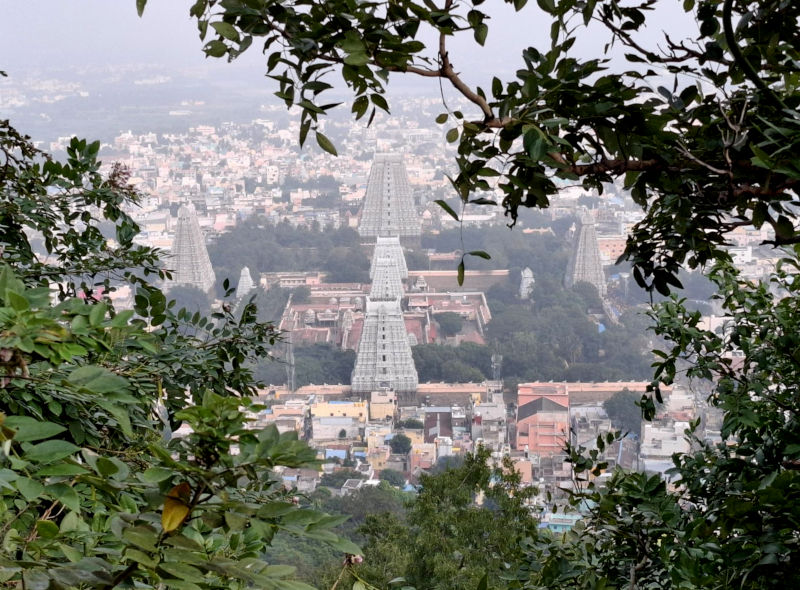
I was recently in South India, leading a group of five through my favorite places there. I have returned with brightness in my heart, and again deep respect for many Tamil people. People’s lives in South India are not as comfortable as mine. Some of my friends are very poor indeed. But they have big hearts.
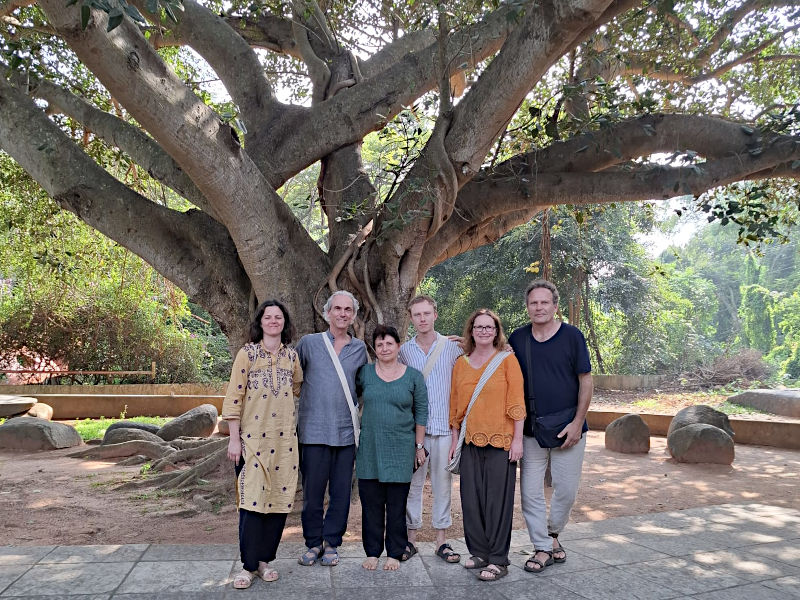
Interactions with such people is refreshing to say the least. In light of politics, wars, and widespread increase in health issues around the world, we often feel caught up in cycles of human history as it plays out through journalism. We can feel like victims of the media. We certainly don’t have to identify as intensely as we are encouraged to with the cycles of life as they are portrayed in CNN or YouTube videos.
My time in S. India allowed me to sense an abundance of hope and confidence as to how beautiful, profound, and rich life is and can be for all human beings. I wonder if you think this is odd. Do I read like a cheerleader for humanity? In any case, I suppose this radiance that expands is why I have spent so much time in S. India and why I continue to lead travel groups there.
But it is important for me to ask myself what it is that dulls our bright nature. Something shines inside resiliently within human beings wherever I go. Why do we cover it over with dramas, power games, and violence? Why do we constantly stimulate our fears?
I think the answer, simply put, is that we don’t know enough about ourselves, and we are in the habit of not confronting ourselves in a deep, honest way. Self-awareness is not really measurable, but we can sense intuitively if someone is awake and has learned to face their challenges in a healthy way. People who have realized something beyond their egoistic idea of themselves naturally cultivate more virtues like silence, humility, and generosity. And we look for these qualities in our teachers, artists, and political leaders.
In my life, when I felt myself at a crossroads and needing to connect more deeply within and with those around me, I went to South India. The air and soil in this part of the world suffer from pollution, but if you shift your gaze, you sense quickly that the land is palpably rich in spirituality and has been for a long, long time. It is said that Bodhidharma, the Dhyana-Zen monk who is known as the 1st patriarch of Zen (Qigong schools love him too!), is said to be from Kanchipuram. Krishnamacharya taught yoga asana to the founders of the Iyengar and Ashtanga in Mysuru. The Theosophical Society has its headquarters in Chennai. J. Krishnamurti, the first awakened person I saw in person in Ojai when I was 17 years old, is originally South Indian. Sri Aurobindo and ‘The Mother’ established themselves and a large spiritual following in Puducherry and Auroville. And Ramana Maharshi, a modern Hindu sage who introduced self-enquiry to Western minds and still influences many today, spent most of his life at Arunachala, a mountain in Tiruvannamalai said to be the embodiment of Lord Siva himself.
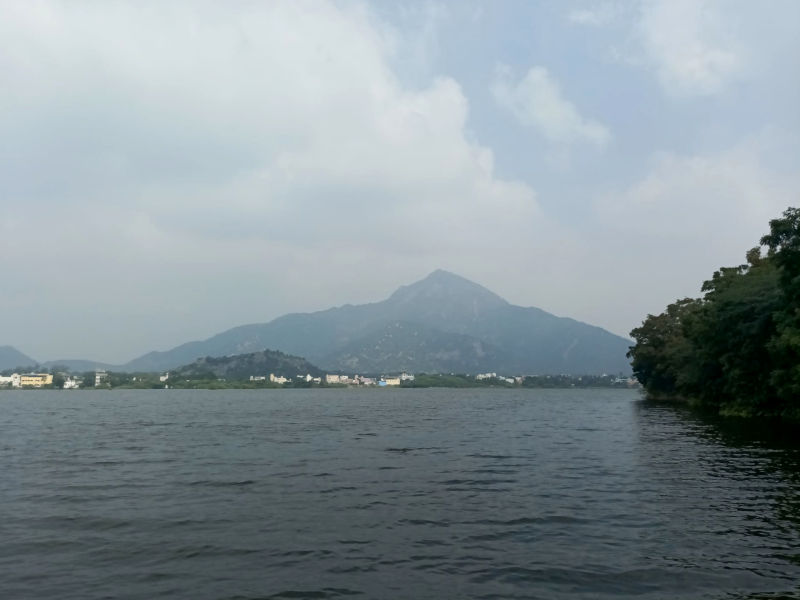
I had done my best to prepare my four German companions for India. Water is an issue. The toilet is a task. Crossing the street can be threatening. Beggars can be irritating and/or heart-breaking. Monkeys might steal your food. I wanted to prepare my group for everything, but I couldn’t prepare them completely, and this was good.
Adjusting to very different mannerisms and constant sensory overload was, of course, not the primary goal of our trip. We travelers had meditated together, practiced Qigong together, healed together, and drank plenty of tea together. We wanted to take another step in deepening and maturing our spiritual lives. We wanted to feel the silent mystery within our hearts to help us see how our minds and emotions function. We wanted to meet good, wise, a people doing good work. We wanted fuel for spreading light and love I the world. We were able to do this. How fulfilling!
What did we do exactly? We meditated at the Ramanashram, We spent many hours at the foot of Arunachala mountain, and also went up at the Virupaksha cave where Ramana Maharshi lived silently for seventeen years. We spent time with Werner Meier, a very wise Swiss yogi who has lived in India for 45 years. We also meditated at the magnificent Matrimandir in Auroville. We met the dedicated founders of Deepam, a thriving center for children with severe disabilities. Those were special energetic experiences indeed!
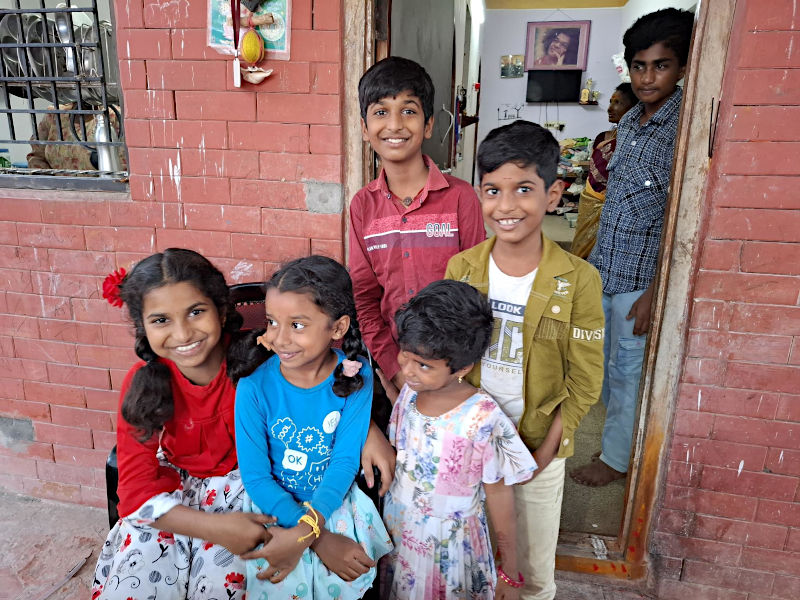
But if I think of the true significance and depth of our trip, what really infused the heart with light and love that carries over into a joyful enthusiasm about life together with others on the earth, was our connection to the local people we met. The Tamil folks seemed to sense where our hearts were and responded with showing their own.
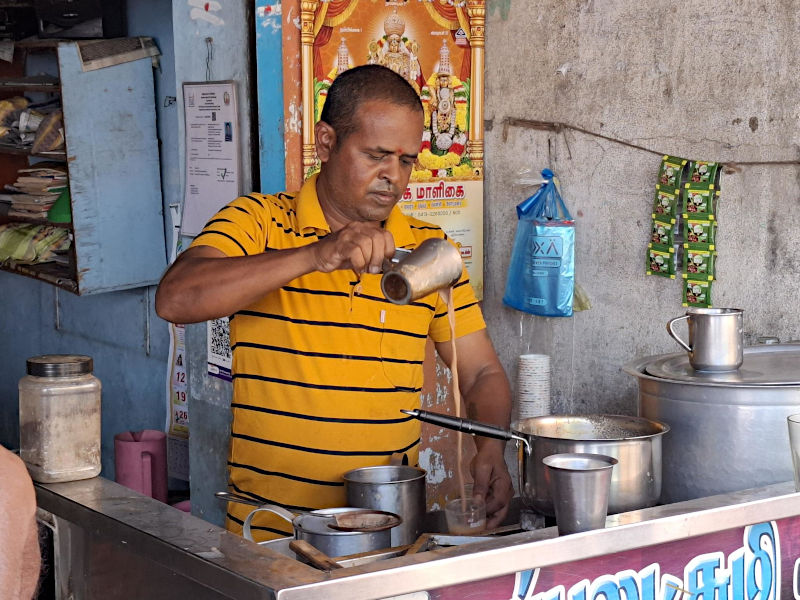
India is a country in transition, but one can still say by European standards (and certainly by Swiss standards) that people live with very small incomes. And still, the local people we met were amazingly generous. We felt it with the men making tea in the chai stalls or the women creating the daily rangoli designs in front of their doorway. Their smiles and kindness resonated a sense that we too belonged in their larger human family, breaking down any ideas of class or color which might want to arise from our conditioned ways of seeing other human beings.
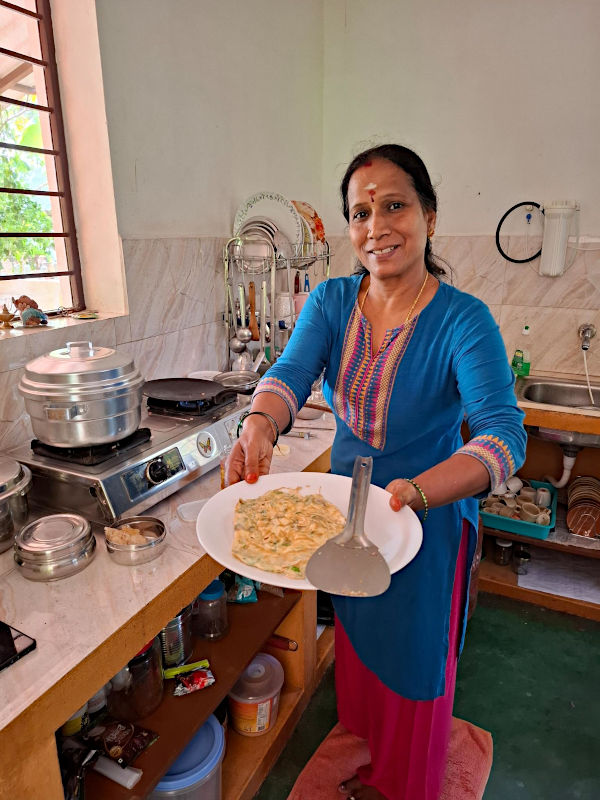
And more than that, a brightness, a glow, emanated from these open people and filled us, seeing and connecting to what we ourselves are; light, love, and creative life-energy. An amazing gift it is, this natural trust arising, allowing the thinking mind to recede and allow qualities deeper in the heart to shine forth. This depth of spirit is our common human experience, providing joy, healing, and natural human goodness.
So, when Germans, Tamils, and an American can experience life so richly together, I ask myself again, why do the dark shadows prevail over so many minds, over our collective human spirit? What don’t we know about ourselves?
If we learn to see our minds clearly, we see that there is greed. Yes, if we are honest, we can all be quite selfish. Think of our emotions around paying taxes. Taxes are a great way for those with more wealth to share with those with less. But instead of enjoying the sharing of our wealth, we shudder at the pressure of owing up each year. We often pay someone quite a bit of money so we can pay less and feel afterwards like we won a game. But who did we beat? Ultimately, we beat ourselves, our collective sharing spirit. Sure, we share generously with family and friends, but for strangers, if they are not of our class or race, even if they are members of our community, we often want to hold back.
I think we have no choice in light of political shifts in the world and lack of mutual trust but to look at our own greed and fears of having less very carefully. New frontiers for our generous spirits will only open in this way.
Life is constant change and exchange. Trees give and take a lot. Animals give and take a lot. Do we humans live from that naturally giving place, or are we scared, guarded, and even miserly.
We were able to give some financial donations in India, but what we received from the people felt like much more. Generosity in abundance. Good for us, good for others, so good that something continues to glow back here in Europe. Would be nice to spread it back to the the USA as well!
I am delighted that my group of travelers, a special education teacher, two social workers, and a businessman, and I had some luminous moments in India. We pass on what we are as well as what we know. Or, “Be the change you want to see in the world,” as Mr. Gandhi said.
Time to look at my taxes.
